Can one bike do it all? BMC unveils next gen Roadmachine family that aims to serve road, gravel and e-bike riders with one platform
We tested the gen three BMC Roadmachine on smooth tarmac and techy trails, as the Swiss bike company reboots its endurance platform for 2024

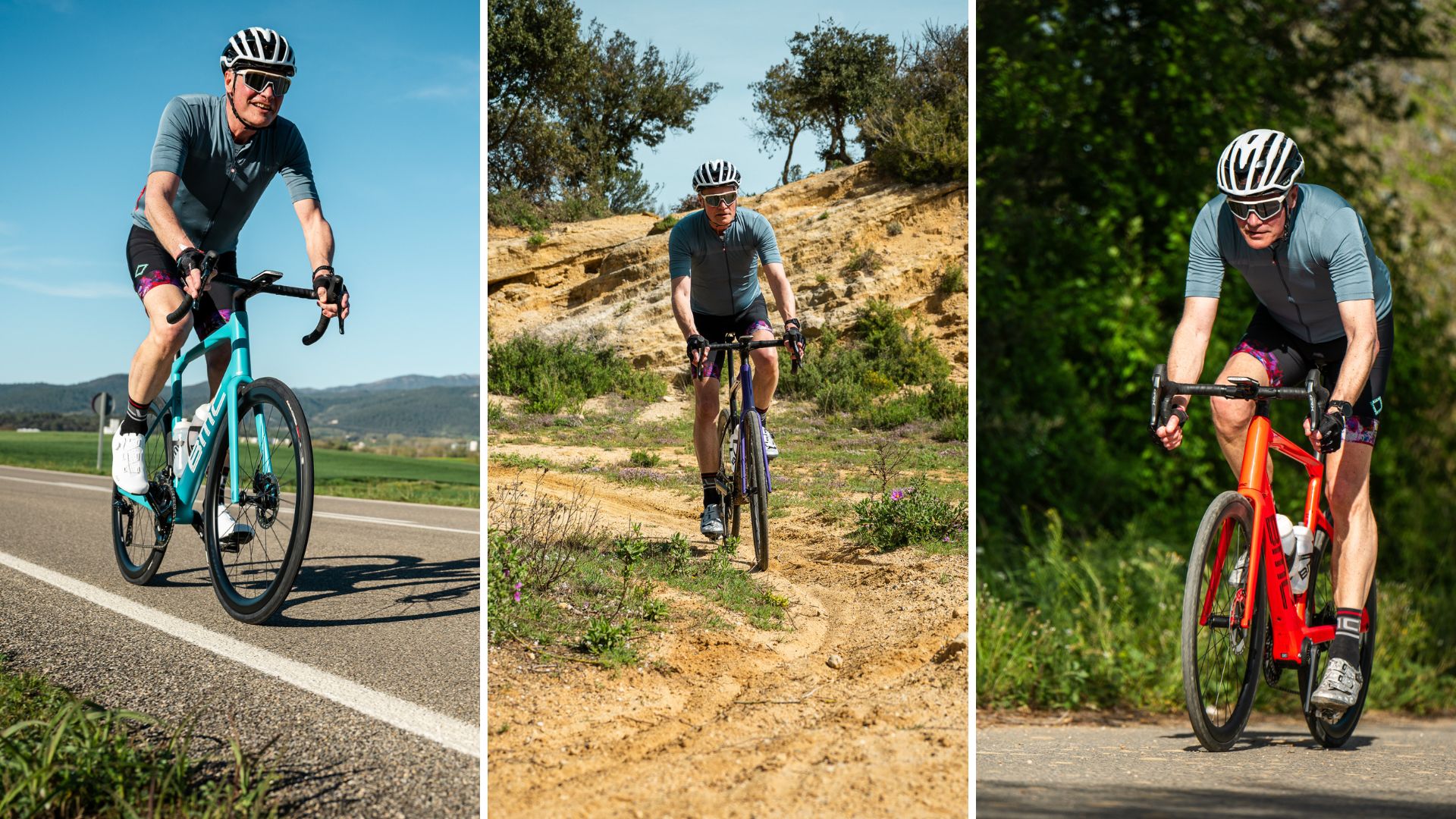
The latest race content, interviews, features, reviews and expert buying guides, direct to your inbox!
You are now subscribed
Your newsletter sign-up was successful
Beneath sunny Catalan skies, BMC recently launched its third generation Roadmachine platform, under the banner ‘The Endurance Formula’. The ‘formula’ consists of four bike lines that include the road-going Roadmachine and Roadmachine AMP e-bike, together with their gravel-munching counterparts, the Roadmachine X and the Roadmachine AMP X.
In truth, BMC dealers have had access to Roadmachine AMP stock since the end of last year, but the analog bikes are brand spanking new for 2024. Intriguingly, both the Roadmachine and X variant share the same frameset and fork, the only notable differences being the cockpit, groupset and tires. So conceivably, with quick wheelset swap, either bike could become your ‘one and only’ bike, for endurance road riding and gravel.
But, can 'one bike to rule them all' successfully mix it with the likes of the Canyon Endurace and Specialized Roubaix SL8? We put the theory to the test over a smooth and fast road ride, more gentle e-bike jaunt, and a technical off-road excursion near Girona.
A softer ride
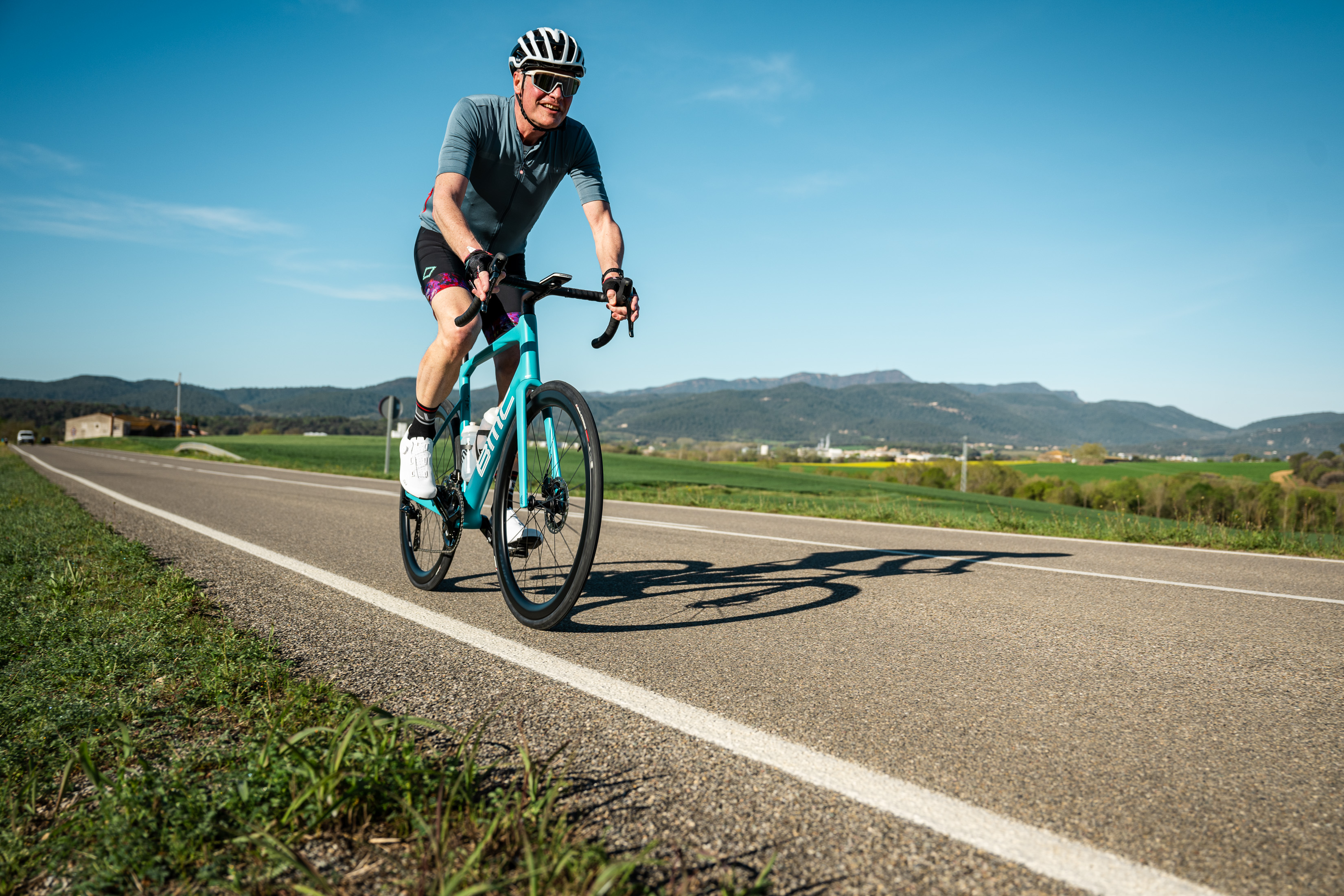
The non-electric Roadmachine series can trace its lineage back to BMC’s Granfondo GF01 of 2013, a true race bike, yet one developed with added comfort and stability to tackle the cobbled Spring Classics.
Helmed by Greg Van Avermaet, a GF RBX went on to win Paris-Roubaix in 2017, but by then BMC had already debuted its successor, the first gen Roadmachine. This was a disc-only, endurance-orientated performance bike with fewer race pretentions to capture a broader slice of the market. Gen two appeared in 2020, with full cable integration and massive, for the period, 33mm tire clearance for the newly exploding gravel scene.
In its gen three creations, BMC aimed to supercharge comfort and clearance without compromising performance. Fitting bigger tires increases comfort profoundly, but simply lengthening the wheelbase to do so would have degraded both handling and power transfer, sacrifices BMC wasn’t prepared to make.
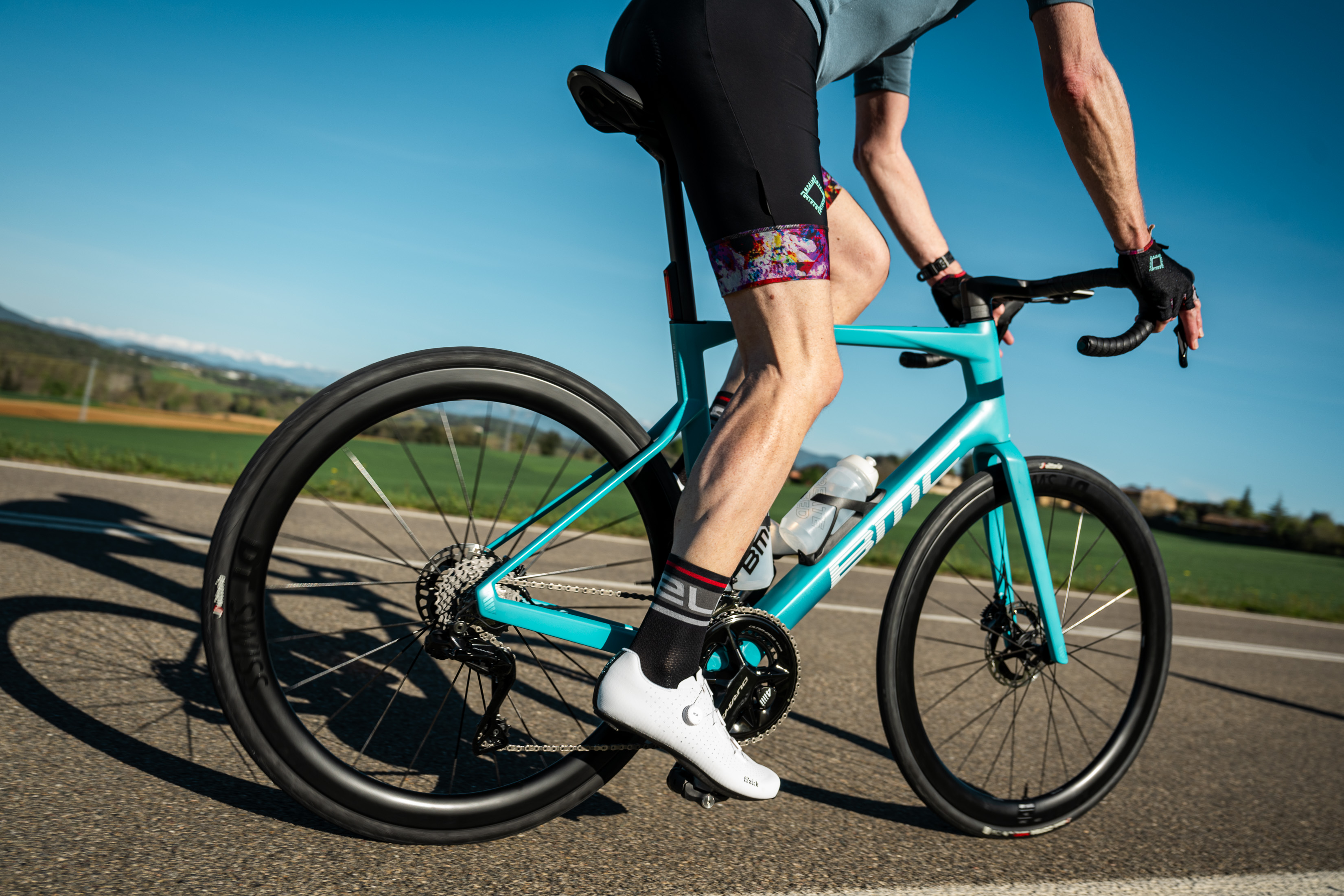
“We’ve completely reshaped the rear triangle,” confirms Stefan Christ, BMC’s head of R&D. “The 86mm PressFit bottom bracket enables us to attach the chain stays wide apart, and a recent UCI regulation change allows the seat tube to be much slimmer at the wheel cutout. Despite gaining clearance for 40mm tires, we’ve only had to increase the wheelbase by a maximum of 3mm across all frame sizes.”
The latest race content, interviews, features, reviews and expert buying guides, direct to your inbox!
A hallmark of the Roadmachine is its kinked seat stays, which bring compliance to the rear triangle. “The thinner seat tube now acts as a pivot point, enabling the seat stays to flex more,” says Christ. “And, the D-shape seat post also adds up to 20mm of deflection for heavier riders. Conversely, the chain stays are extremely stiff laterally, just as the down tube is torsionally very stiff.”
To allow for the increased clearance, the chainstays are much finer in profile where they meet the bottom bracket, as are the seatstays where they meet the seat tube. It’s a svelte looking frameset, even the headtube is noticeably slimmer than its predecessor.
Geometry for comfort
Frame geometry has been tweaked slightly for comfort and stability too, more so on the smaller frame sizes. For example, on a size 54 frame, stack has been increased by 8mm to 570mm, while reach has been reduced by 3mm to 383mm. By comparison, BMC’s out-and-out race bike, the Teammachine SLR 01 in the same size has a much lower stack at 550mm and a longer reach at 386mm.
To offer a comparison, a Specialized Roubaix in size 54 has a stack of 585mm and reach of 381mm; the crucial numbers for a Canyon Endurace CF SLX in size Small are 568mm and 375mm respectively.
The Roadmachine’s headtube angle has been slackened slightly across all frame sizes, but typically only by a fraction – in a size 54, it’s 72.2 degrees. Seat tube angle remains the same at 74.2 degrees across the board, as does trail at 63mm.
Increased integration
BMC pioneered the clean, integrated aesthetic with the original Roadmachine, and it’s now making strides on on-board storage with an integrated rear light and fender compatibility.
Where Canyon has chosen to install a storage compartment in the Endurace’s top tube, BMC has opted for the Roadmachine’s downtube, discretely integrating the opening hatch into the bottle-cage mount on higher tier models. You’re provided with a modest and unfortunately named ‘stash bag’ in which to store your ride essentials, but there’s plenty of room in there for additional items, especially on the larger frame sizes. Dedicated cable channels within the downtube stop your ‘stash’ from interfering with any control cables, as well as putting an end to the annoying frame rattles that plague many of us.
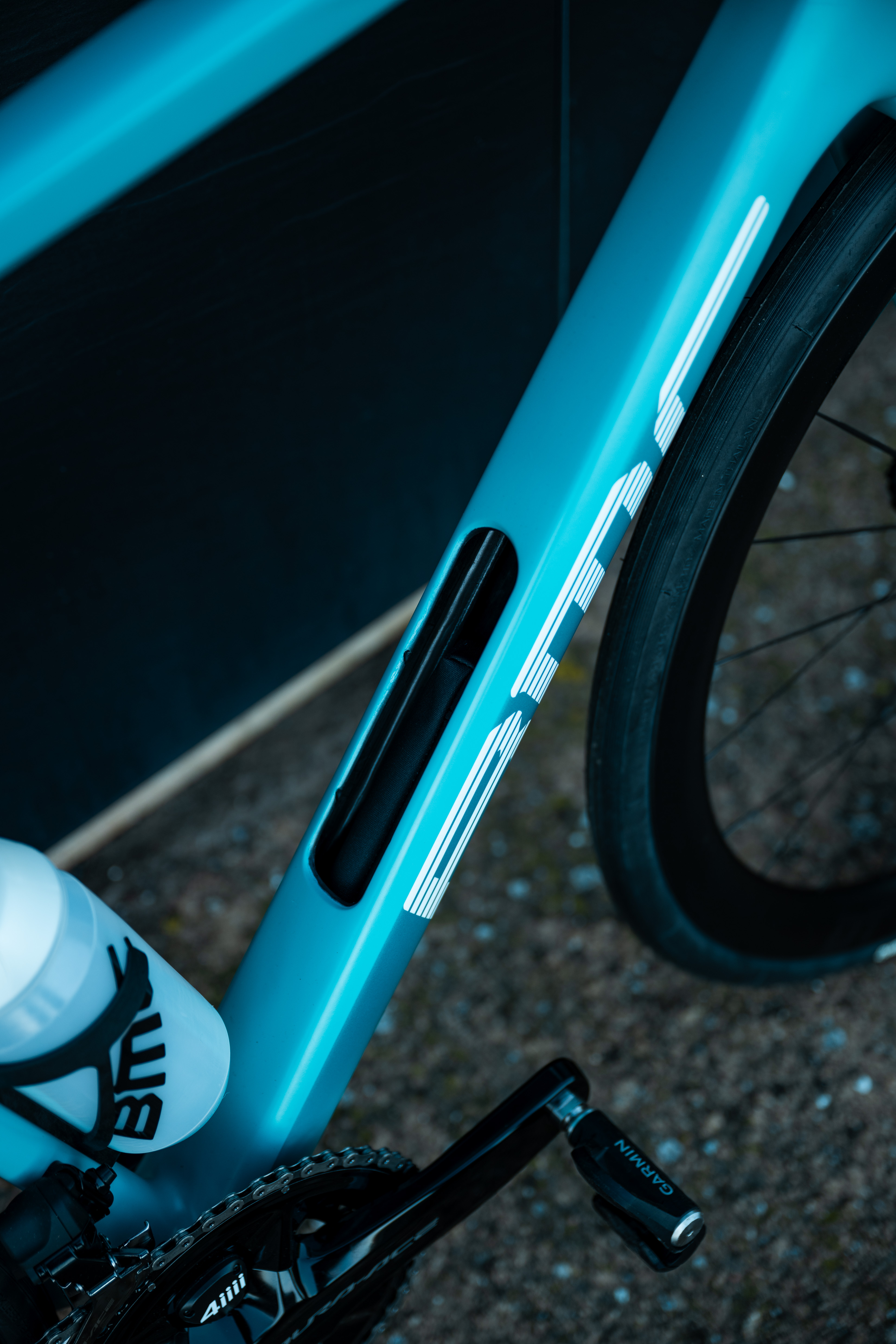
The integrated light mounts easily at the foot of Roadmachine’s D-shape seatpost, and is rechargeable via USB-C. BMC haven’t provided us with output figures but I can confirm that, during my test ride in Girona, the LEDs were plenty bright enough, even in strong Spanish sunlight. They have apparently been selected so as not to blind drivers at night.
There’s support for fenders across the range (Swiss winters can be miserable) with lower tier frames boasting numerous threaded mounts. The 01 frames don’t have mounts but have been successfully tested with clip-on solutions, such as SKS Raceblades.
At the cockpit, the upper tier Roadmachines are fitted with BMC’s flagship one-piece ICS Carbon Evo system, which now features an 8-degree flare on the drops. Roadmachine X models feature its vibration-damping ICS MTT cockpit, which takes the edge of rough tracks. The design is reassuringly simple, relying on elastomer inserts to provide the damping that can be swapped out for different grades of hardness.
Frame weight
Perhaps it’s just me, but BMC’s naming convention for its bike lines somehow manages to remain baffling despite being perfectly logical. Essentially, its top tier model names are suffixed with digits 01, before being ranked ONE, TWO, THREE and so on as their specs decline.
In summary, at one end of the scale sits the top tier Roadmachine 01 ONE road bike, while at the other end we find the entry-level Roadmachine FOUR. The 01 bikes benefit from a lighter, more premium carbon frame together with a fully integrated cockpit.
Claimed weights for an 01 frameset in size 54 are 963g for the chassis, 448g for the fork and 179g for the seatpost.
The lightest Roadmachine AMP model is 12kg.
First ride: can road and gravel collide in one frameset?
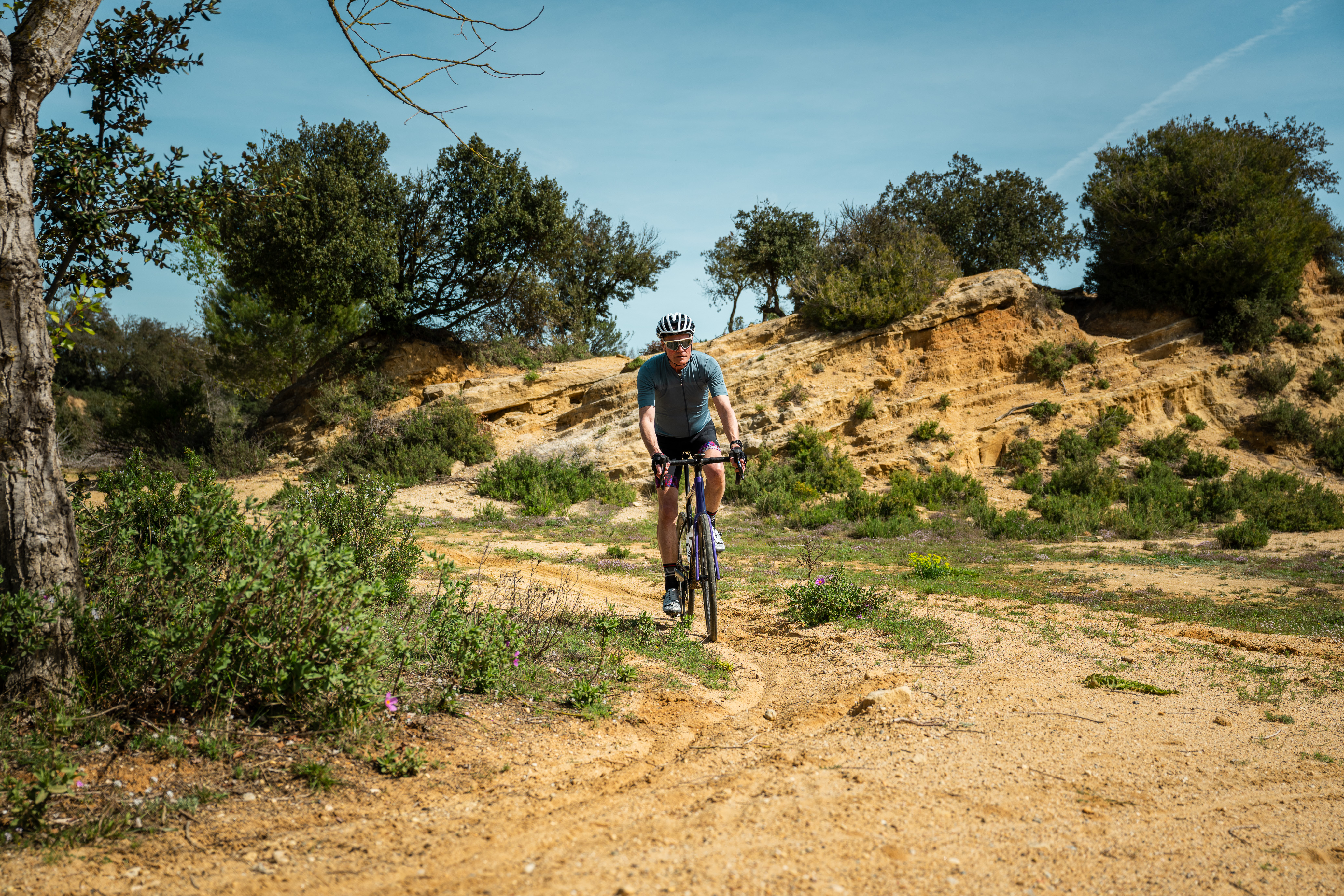
On a remote, washed-out logging track, 30km from Girona, the trail has become so steep and gnarly that I’m beginning to ponder the humiliating consequences of totalling a shiny new $8k/£7k BMC Roadmachine right in front of the brand’s R&D team.
As our group navigates deep gullies and muddy slopes littered with ‘baby heads’, it’s almost inconceivable that just hours ago I, an entrenched roadie, was enjoying a fast group ride on smooth Spanish tarmac using essentially the same bike.
I rode both a Roadmachine 01 TWO and a Roadmachine 01 X ONE during the launch, on road and gravel respectively. The 55km road route snaked its way northeast from Girona towards the Med, taking in 510m of climbing. The bike felt super plush and planted, yet responsive when climbing and very precise when cornering the descents – just like a race bike, but with enhanced stability and comfort.
Arguably, a ride in a shopping trolley would feel just as comfy on Catalonia’s super smooth roads, so it was interesting to then ride a 33km gravel route, with 320m of elevation, on the Roadmachine X.
This bike, with its 34mm tyres, excels at light gravel – it’s fast, agile and soaks up the bumps and lumps with little fuss. Push it further into MTB territory, as we did, and it responds competently – remaining in its comfort zone well after I had left mine. Sure, wider tyres, a slacker head angle and less road-orientated geo would have helped, but it’s remarkable how the Roadmachine’s single frameset can prove so versatile.
The Roadmachine has always sat at the performance end of endurance, so it wasn’t the most comfortable bike out there. This update addresses that without compromising handling or employing gimmicky suspension. The increased clearance for 40mm tires has made it a very capable gravel bike too, one that’s particularly rapid on smoother trails.
So, can one frame really serve both road and gravel? Or will it always be compromised? Certainly, the Roadmachine is a superb endurance road bike that's not held back by its potential to ride gravel. However, straight out of the box, the Roadmachine X isn't a hard-core gravel bike - just look at those 34mm tires. The X is fast and fun on light gravel and perfectly capable on rougher trails too. It just doesn't shine on the truly gnarly stuff in the way that the BMC Kaius can, which is hardly surprising. The clue's in the name - it's part of the Roadmachine family.
eBike models
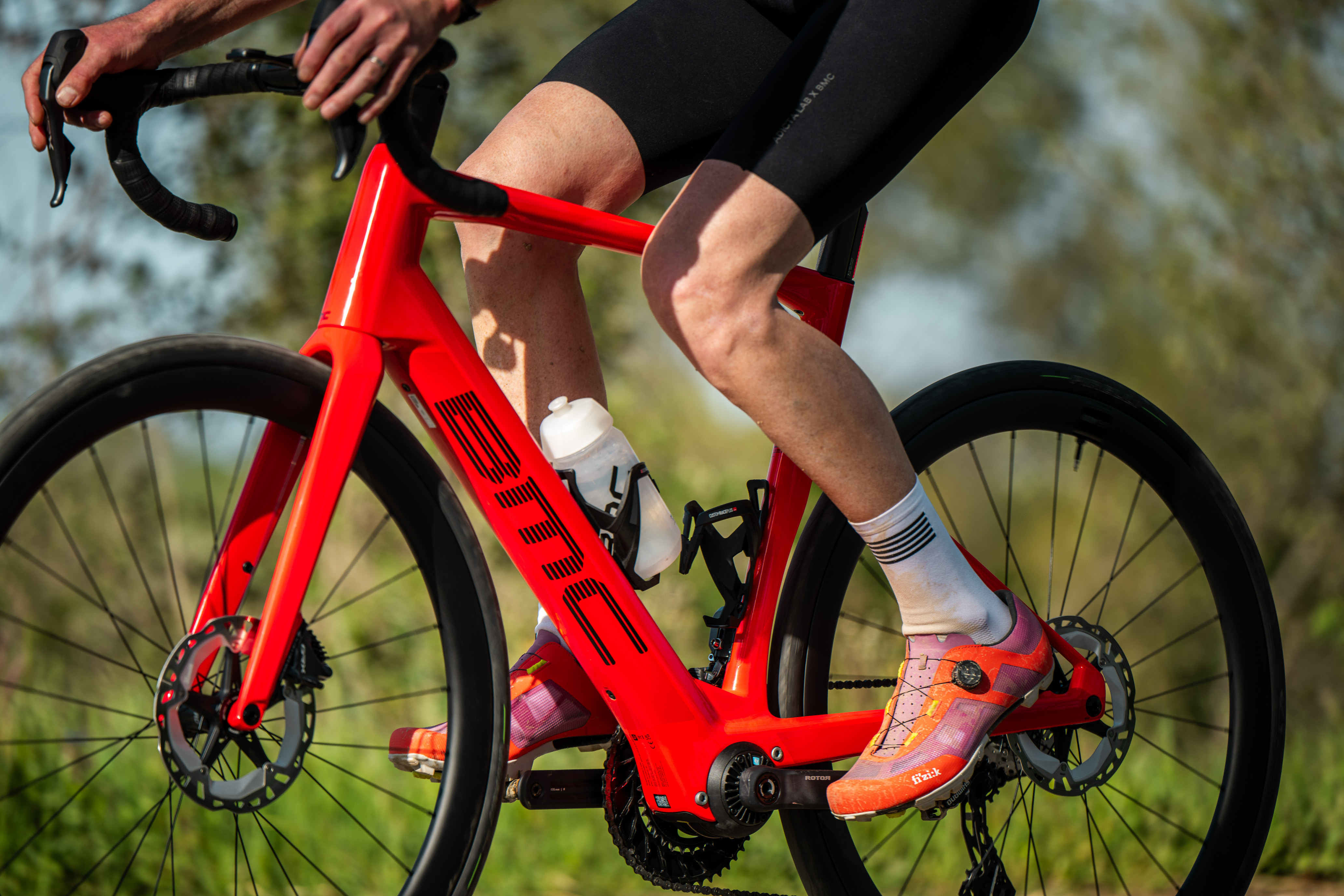
The e-Bike versions of the Roadmachine are all powered by TQ HPR-50 motors, fed by 360 Wh batteries. The TQ HPR-50 is an exceptionally lightweight, whisper quiet system that’s so small it’s almost hidden, but it does only output 50 Nm of torque.
Unfortunately, the 30km test ride that BMC organised during the launch event mostly followed a shallow incline, so the Roadmachine 01 AMP ONE that I was riding constantly hovering around the EU’s 25 km/h speed restriction. This meant that the motor was more off than on, rarely offering me any assistance. On a more positive note, when the e-bike motor did cut in and out, it did so in an impressively natural way that barely disturbed my cadence. It was also so quiet, it was often difficult to tell whether it was on or not.
The next day, I did have a limited opportunity to try it around some of Girona’s steeper streets and alleyways where, provided I span with high cadence, it gently powered me up slopes of 12 percent or more. There’s no ‘shove in the back’ sensation with the TQ HPR-50, the power delivery is far more subtle than that. However, it will appeal to riders who value a relatively lightweight bike with a ride feel that’s completely natural whether the power’s on or off.
Range options
The top-tier road-going BMC Roadmachine 01 ONE has yet to have its specs finalised but the next model down, the Roadmachine 01 TWO, with a Shimano Dura-Ace Di2 groupset and DT Swiss ERC 1100 wheels is priced at 12.999 €/USD. The entry-level Roadmachine FIVE, with Shimano 105 and Mavic Open Disc wheels is 3.199 €/USD.
AMP e-Bike models are available now, the analog bikes will be available from mid-May.
Full spec and RRPs below, UK pricing is TBC:
- Roadmachine 01 ONE Spec and RRP to be confirmed
- Roadmachine 01 TWO 12.999 €/USD Groupset: Shimano Dura Ace Di2 Wheelset: DT Swiss ERC 1100
- Roadmachine 01 THREE 8.499 €/USD Groupset: SRAM Force eTap AXS Wheelset: CRD-321 SL
- Roadmachine 01 FOUR 7.999 €/USD Groupset: Shimano Ultegra Di2 Wheelset: CRD-321
- Roadmachine TWO 5.499 €/USD Groupset: Shimano Ultegra Di2 Wheelset: XRD-522
- Roadmachine FOUR 4.199 €/USD Groupset: Shimano 105 Di2 Wheelset: Mavic Open Disc
- Roadmachine FIVE 3.199 €/USD Groupset: Shimano 105 Wheelset: Mavic Open Disc
- Roadmachine 01 X ONE 7.999 €/USD Groupset: SRAM Force XPLR eTap AXS 1x12 Wheelset: CRD-321
- Roadmachine X TWO 7.999 €/USD Groupset: SRAM Rival XPLR eTap AXS 1x12 Wheelset: XRD-522
- Roadmachine X THREE 4.299 €/USD Groupset: SRAM Apex XPLR eTap AXS 1x12 Wheelset: XRD-522
- Roadmachine 01 AMP ONE 8.999 €/USD Motor: TQ HPR-50 Groupset: Shimano Ultegra Di2 Wheelset: CRD-400 SL
- Roadmachine 01 AMP TWO 7.999 €/USD Motor: TQ HPR-50 Groupset: Shimano GRX Di2 Wheelset: CRD-400
- Roadmachine 01 AMP THREE 7.999 €/USD Motor: TQ HPR-50 Groupset: Shimano 105 Di2 Wheelset: XRD-522 Roadmachine 01 AMP ONE X 8.999 €/USD Motor: TQ HPR-50 Groupset: SRAM Force eTap AXS Wheelset: CRD-400
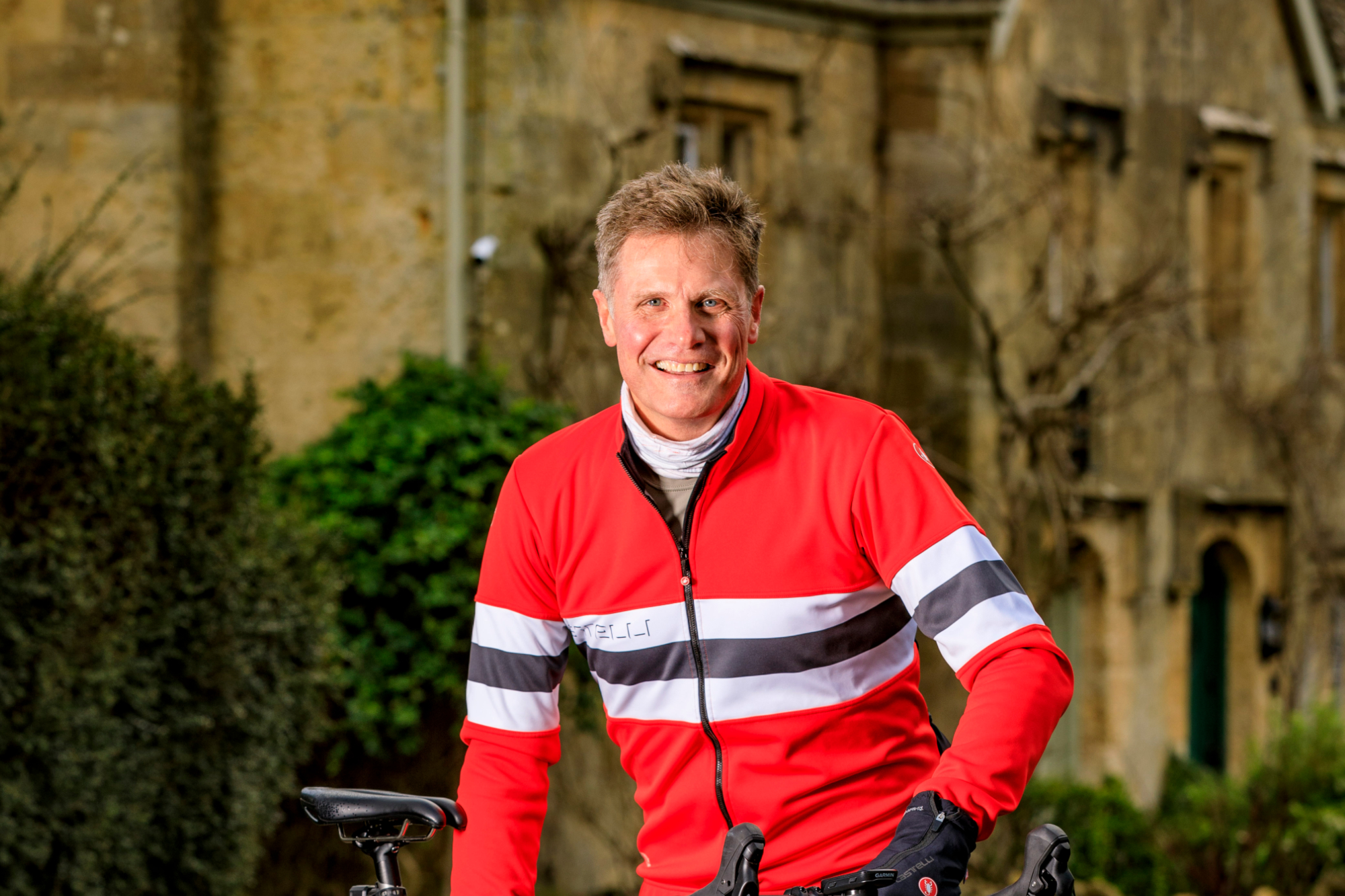
Simon spent his childhood living just a stone’s throw from the foot of Box Hill, so it’s no surprise he acquired a passion for cycling from an early age. He’s still drawn to hilly places, having cycled, climbed or skied his way across the Alps, Pyrenees, Andes, Atlas Mountains and the Watkins range in the Arctic.
Simon now writes for Cycling Weekly as a freelancer, having previously served as Tech Editor. He’s also an advanced (RYT 500) yoga teacher, which further fuels his fascination for the relationship between performance and recovery.
He lives with Jo, his yoga teacher wife, in the heart of the Cotswolds, with two rescue cats, five bikes and way too many yoga mats. He still believes he could have been a contender if only chocolate weren’t so moreish.